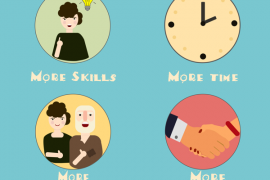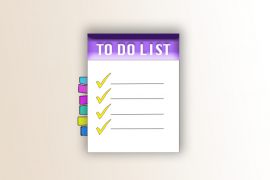We don’t need to be perfect to succeed in our jobs, but we need to persist.

We have watched multiple videos on how to excel as a student and we have read enough books on self-help to know, at the back of our heads, how to approach any situations in the workplace. But, once we’re employed for the job we’ve studied for, everything falls apart and little of the technical information we read on has proven as worthy as expected. We’ve also come to realize that our straight As’ importance has been exaggerated and we probably shouldn’t have stayed up studying all those nights if only we knew the reality, and finally, we start feeling inadequate at work. Every day seems like an emotional nightmare of self-doubt and inadequacy; we can’t stand hearing the phone ring in our office in case someone requests something, we’re not good enough to do and a simple conversation with our boss feels like a meeting with Caligula (a vicious and bloodthirsty Roman emperor who ruled 41 AD).
There is an impulse to blame our educational system for depending on memorizing and technicality more than practicing and reality, or our society for keeping us pampered and sheltered in our parents’ house for far too long that we lack interpersonal skills at work, leading us to enter the workforce with highly regarded degrees (i.e., Doctors and engineers) and impressive grades alongside zero experience in our resumes, and not enough volunteering to establish workwise common sense. Now, all that might be true, but what is the solution? And how normal is this feeling of inadequacy? Are we really inadequate?
Yes, you are inadequate and that’s good because starting a new phase in life or a new challenge should not be familiar or else we’ll be way too comfortable, and comfort does not generate creativity nor does it reflect actual progress. It is quite normal to feel inadequate after leaving school and starting work as technicality does not reflect reality as much as you wanted, but what’s important is to find support.
Yes, Support. Speaking with friends and former classmates going through the same phase in life can maintain confidence instead of comparing ourselves to the more experienced individuals who have already gone through the phase we are dealing with, leading only to self-doubt and negativity. Another source of support can be found in the workplace among colleagues; that one person who’s eager to help and does not mind answering your same question twice. But be careful not to fall into the dependency trap, where you become too comfortable with other people having your back every time a task is assigned to you that is not new.
Every time we wake up in the morning and turn off our alarm to get ready for work we need to remember that inadequacy is a phase; not a permanent state. It can be frustrating facing inadequacy in a whole different world but to give in and sink into the pool of inadequacy will not guide us to the profession we dreamed of. We don’t need to be perfect, we need to persist. We shouldn’t avoid mistakes by inaction, no matter how fearful and embarrassing it may be, because making mistakes are lessons well learned, and lessons learned by mistakes are usually the ones that last the longest.




Wow, I’ve just remembered my first working days after graduation. It was really hard and scary, but as you’ve mentioned, it is a phase; not a permanent state. I like the conclusion of this post, it is very motivational. I also repeat the words ‘Never cry, always try’ to my son, hope it will become his motto in life.